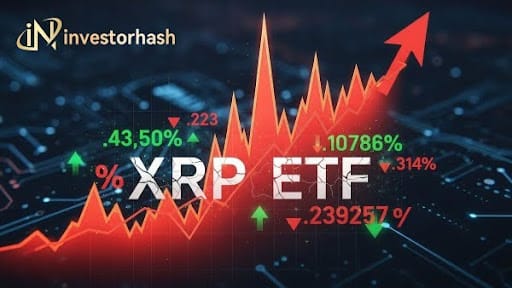Bitcoin payments are on the rise, with companies like CoinsPaid and PayPal leading the way

Cryptocurrency is probably the most divisive financial asset of the decade. Some, like the Microstrategy CEO Michael Saylor or the founder of Twitter Jack Dorsey, believe that Bitcoin can become a $100 trillion asset and ‘create world peace’. Others, like the billionaire investor and notable ’gold bug’ Peter Shiff, say that it’s ‘fool’s gold’ and ultimately useless.
But even within the crypto enthusiasts’ camp, there are strong divisions as to how crypto should be used. Is it better to buy and hold coins until they pull a 5x (or sometimes even 20x) and then sell them, as you would do with any investment? Or shoulyou rather use it as currency – that is, to pay for goods and services? After all, the mysterious BTC creator, Satoshi Nakamoto, entitled his White Paper ‘Bitcoin: A Peer-to-Peer Electronic Cash System’, and there are dozens of specialized processors offering crypto payment services, such as CoinsPaid and Coinbase Commerce.
This debate reflects crypto’s peculiar dual nature: as an investment asset and as a currency. You can’t pay for a planet ticket with gold or stocks; but you can do it with Bitcoin.
Why pay with crypto as opposed to a bank card?
The media tend to focus on the speculative aspects of investing in BTC, but cryptocurrency is indeed actively used as a means of payment. From the end user’s point of view, there are two big advantages to paying with crypto:
1) Global acceptance. You can be pretty sure that your Bitcoin payment will be successfully processed, regardless of your and the store’s locations. By contrast, a bank card payment can be refused if the store uses a payment service based in a different region: for example, an Indian card may not work in a Latin American online store.
2) Privacy and security. Users aren’t required to submit any personal or sensitive financial details when making a Bitcoin payment. Credit card data can be stolen and used for fraudulent transactions; but there’s nothing online criminals can do with a blockchain wallet address.
More and more users are becoming aware of these advantages and switching to cryptocurrency for at least some of their online payments. According to Max Krupyshev, CEO of CoinsPaid, his company has already processed $ 2.3 billion euro worth of crypto payments in 2021 – twice more than in all of 2020.
Through a merchant’s eyes
In spite of end users’ interest in Bitcoin, thousands of online merchants wouldn’t offer crypto payments if it wasn’t also in their best interest. So what do businesses get out of it? Max Krupyshev explains:
“We've recently polled many of the 700+ merchants that use Cryptoprocessing by CoinsPaid to find out what they appreciate most about accepting crypto. The majority named the same three items: reduced costs, zero chargebacks, and access to new audiences.
Coin payments don’t involve acquiring fees. Online shoppers don’t realize how much of an online store’s revenue is spent on those fees, plus rolling reserves. Remove these – and you get 50-70% less in payment costs and a 10% bump in profits.
Chargebacks are a huge pain, too, because every $100 in chargebacks the merchant actually pays over $200, once you account for bank fees, wasted time, etc. With a BTC payment, a chargeback is technically impossible, since a Bitcoin payment has to be initiated by the payer.
Finally, a lot of crypto users purposefully look for online businesses that accept Bitcoin payments. For example, our own research shows that 57% of crypto holders who are also gamblers use exclusively Bitcoin casinos.”
Do crypto payments have their downsides? They do – and high blockchain mining fees are the most notable pain point. In mid-September 2021, the average mining fee for a Bitcoin payment was $3, while for Ethereum it reached $50. Is there anything a Bitcoin payment gateway can do about this? Max Krupyshev continues:
‘What CoinsPaid does is group transactions in such a way as to minimize gas fees. But this is our proprietary tech, and most other BTC business payment services don’t have anything of the sort – end users just have to pay whatever miners charge. On the other hand, we’ve managed to scrap gas fees for the merchants who accept Bitcoin as payment when they send transactions within or outside of our ecosystem.’
Of course, an alternative is to choose another cryptocurrency. Apart from ETH and Bitcoin services, gateways like CoinsPaid support dozens of digital assets, such as LTC, DOGE, BCH, etc. A merchant can integrate and receive payments seamlessly in any number of coins and tokens. In fact, according to billionaire Mark Cuban, the majority of users transacting with his services choose to pay in DOGE as opposed to BTC, so crypto payments could become much more diversified going forward.
For a merchant using secure payment services offered by a company like CoinsPaid, it doesn’t matter if the payment source is a BTC wallet, or MetaMask, or a multi-currency wallet that supports DOGE, LTC and so forth. Once they receive a payment, it is stored in a sub-account for that specific cryptocurrency under the merchant’s account with the payment processors. If the merchant isn’t comfortable with the crypto volatility risks, they can convert the accumulated coins into fiat and withdraw the funds to a bank account (so-called fiat settlement).
PayPal and FIS to offer crypto services: what’s next for digital currency payments?
Large players like CoinsPaid, Coinbase Commerce, and BitPay dominate the Bitcoin payment scene, but as cryptocurrencies gain adoption, traditional financial companies are starting to enter the business. Here are a couple of examples that made recent headlines:
PayPal
In October 2020, PayPal announced that it would support buying, storing, and selling BTC, ETH, LTC, and BCH. In early 2021, the company said it will also enable paying for purchases with crypto as part of PayPal checkout.
For regulatory reasons, the company will have custody over the coins, and users won’t be able to withdraw them to external wallets. Still, it’s a big step forward in the integration of CeFi (centralized finance) and crypto: among PayPal’s 370 million users, hundreds of thousands will probably soon learn how to pay with Bitcoin.
This will benefit crypto adoption as a whole as these new users explore more advanced services, such as converting funds from a credit card (CC) to BTC and vice versa, opening crypto deposit accounts, paying with alternative cryptocurrencies, etc.
FIS
FIS is the largest payment processing company worldwide with an annual turnover of $9 trillion. The payment giant recently partnered up with CEX.io - a popular crypto exchange – to issue crypto debit cards to UK and selected EU residents. The cards will be issued under the CEX.io brand, but FIS will provide the transaction processing services.
Being able to use crypto to pay for purchases in brick-and-mortar stores or to withdraw money in an ATM is a key transitional step on the road to mass adoption. There are already some popular crypto cards on the market – notably Binance and Crypto.com – but the untapped window of opportunity in this niche is still very large.
Twitter CEO Jack Dorsey recently said that the company plans to integrate Bitcoin into its services. He didn’t provide details, but possible applications of crypto payments on Twitter could include in-app shopping, subscriptions, and tips. With its 200+ million monetizable daily users, Twitter could become a major hub for crypto transactions even before Facebook fully launches its own cryptocurrency project, Diem.
It would be very premature to say that Bitcoin will soon get on par with fiat money as a means of payment. So far it’s legal tender only in El Salvador, and altcoins (starting with Ethereum) cannot even boast that. However, there is a clear growing interest in crypto as a way to pay online, as opposed to credit cards and e-wallets – and here, we might see impressive expansion in the next couple of years.




